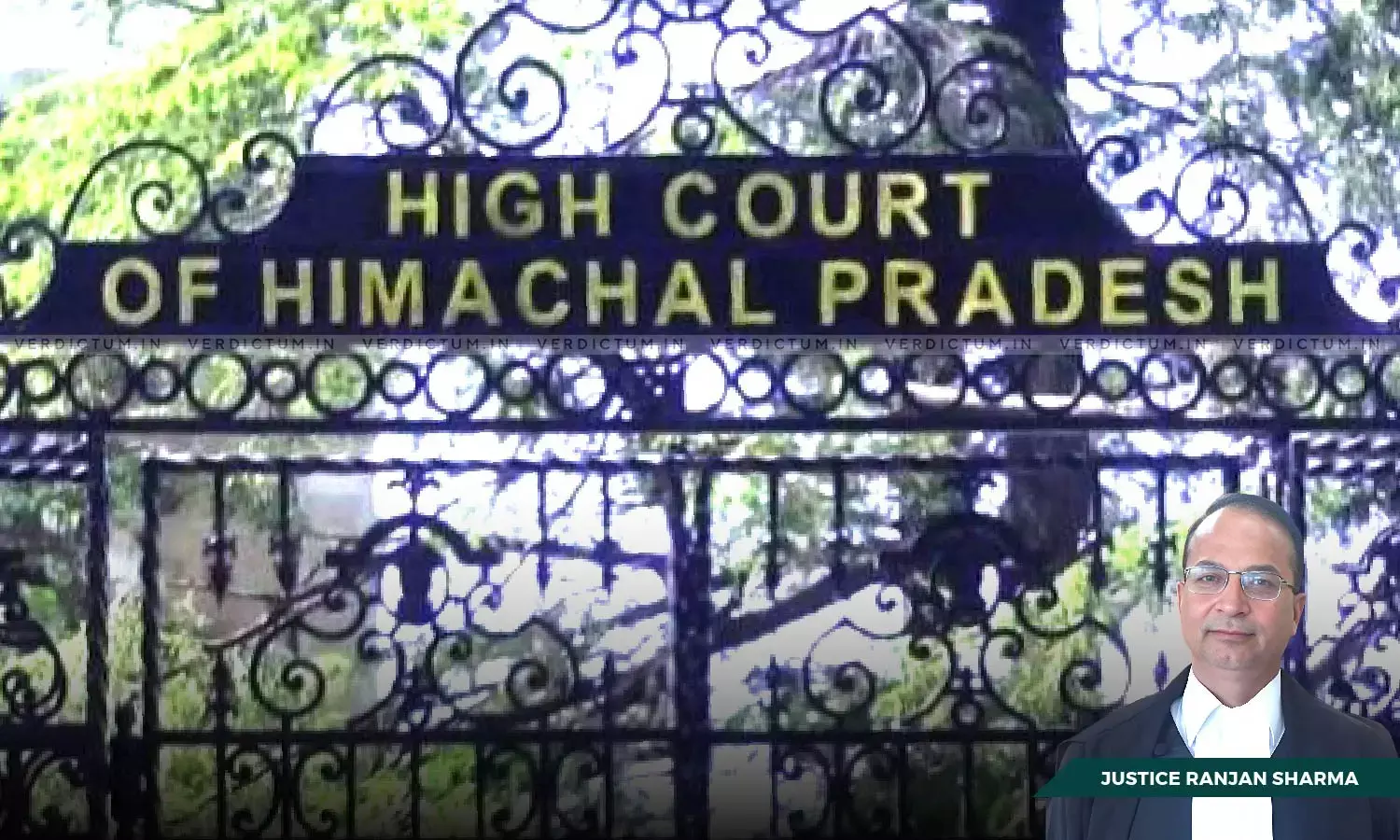Termination Of Arbitrator’s Mandate Due To Administrative Delays And No Fault of Petitioner Unjust: Himachal Pradesh High Court
The High Court observed that the arbitral proceedings instituted in 2018 remained incomplete due to COVID-19, administrative reasons, and delays, with both parties participating beyond 18 months without objection.

Justice Ranjan Sharma, Himachal Pradesh High Court
The Himachal Pradesh High Court held that under Section 29A of the Arbitration and Conciliation Act (Arbitration Act), arbitral proceedings must ordinarily be completed within 18 months, but delays due to unforeseen circumstances, including administrative reasons, justify an extension under Section 29A(5). Setting aside the order that terminated the Arbitrator’s mandate, the Court observed that the Petitioners could not be made to suffer due to delays beyond their control and directed the completion of proceedings within a reasonable period.
A Single Bench of Justice Ranjan Sharma held, “Though, the arbitral proceedings under Section 29A(1) and Section 29A(3) are to be completed within 18 months period yet in case due to unforeseen eventualities the arbitral proceedings are not completed within 18 months, then the law-makers were conscious enough by prescribing a remedy under Section 29A(5), for extending the period of arbitral proceedings, only for sufficient cause and on such terms and conditions, as may be imposed by the Court.”
The Court added, “In instant case, the arbitral proceedings continued since 2018 till February 2024, in which the Petitioners and Respondents s participated without any objection. These proceedings stretched over for almost six years. Once the Learned Arbitrator permitted the parties to participate in arbitral proceedings beyond the permissible period of 18 months then, the Impugned Order passed by Arbitrator on 16.02.2024 [Annexure P-2, Colly], that he cannot proceed because his mandate stood terminated and the arbitral proceedings were kept in abeyance, certainly amounts to prejudicing the Petitioners due to an act of Arbitrator herein which defeats the principle of 'Actus Curiae Neminem Gravabit'.”
The Petitioners were represented by Advocate H.S. Rangra, while Advocate Shreya Chauhan appeared for Respondents.
Brief Facts
Pursuant to a notification under Section 3(A) of the National Highways Act, 1956, the Central Government published a notification for acquiring a stretch of land for building, widening, maintenance, management, and operation of a highway in the State of Himachal Pradesh. Consequently, the land belonging to the Petitioners was acquired by the Competent Authority/Land Acquisition (CALA) in terms of an award passed by it.
Aggrieved by the said award passed by the CALA, the Petitioners filed a reference petition before the Arbitrator-cum-Divisional Commissioner (Arbitrator). The Arbitrator continued with the arbitration proceedings, however, by the impugned order passed by it, the arbitral proceedings were closed and the mandate of the Arbitrator stood terminated on the ground that the arbitral proceedings could not be completed within the schedule as per Section 29A(1) and Section 29A(3) of the Arbitration Act.
Consequently, upon the impugned order terminating the Arbitrator's mandate and keeping proceedings in abeyance, the Petitioners submitted that it was left without remedy and that the delay, not attributable to the Petitioners but due to administrative reasons, caused prejudice to the parties. It was prayed that the time for completion of the proceeding be extended, with directions to the Arbitrator to conclude proceedings.
Reasoning of the Court
Adverting to Section 29A of the Arbitration Act, the Bench noted, “Object of the arbitral proceedings is consensual entrustment of parties to an Arbitrator who is bound to complete the arbitral proceedings within a period of 12 months under Section 29A(1) and within extendable period of 06 months under Section 29(A)(3) of the Act. Meaning thereby that arbitral proceeding are to be completed by an Arbitrator within a period of 18 months in totality. Though, the arbitral proceedings under Section 29A(1) and Section 29A(3) are to be completed within 18 months period yet in case due to unforeseen eventualities the arbitral proceedings are not completed within 18 months, then the law-makers were conscious enough by prescribing a remedy under Section 29A(5), for extending the period of arbitral proceedings, only for sufficient cause and on such terms and conditions, as may be imposed by the Court.”
The Court observed that the parties had consensually participated in arbitral proceedings from 2018 until February 2024, and the impugned order terminating the Arbitrator's mandate and keeping proceedings in abeyance prejudiced the parties, which could not be permitted to operate.
The Court referred to the decision of the Apex Court in Rohan Builders (India) Private Limited v.Berger Paints India Private Limited (2024) wherein it was reiterated that the mandate of an Arbitrator is liable to be extended, in view of sufficient cause, to the satisfaction of the Court.
The Court observed that the arbitral proceedings continued since 2018, with both parties participating without objection for nearly six years. Once the Arbitrator allowed proceedings beyond 18 months, the impugned order terminating his mandate and keeping proceedings in abeyance prejudiced the Petitioners, defeating the principle of Actus Curiae Neminem Gravabit.
Consequently, the Court allowed the petition setting aside the impugned order passed by the Arbitrator and further mandated the Arbitrator to complete the arbitral proceedings within six months.
Cause Title: Gopinder Singh v. Land Acquisition Officer Cum Competent Authority (SLAU) & Anr. (Neutral Citation No. 2025:HHC:6238)


